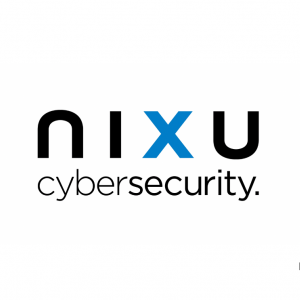Fortified Business Resilience is Key – How to Get There?
Today, the greatest driver of cybersecurity investments is the need to fortify business resilience. It was selected by 81% of respondents in the Nixu Cybersecurity Index 2023 survey. What remained unanswered was what business resilience means, why it is crucial, and how organizations can build it. Let’s take a closer look.
Shortly, business resilience can be defined as the capability to withstand any external disturbances that might endanger business continuity. The need for business resilience isn't sector-specific, but having a resilience plan is a universal imperative. It is a non-negotiable facet across all industries.

In our era, business resilience is affected by the constant and accelerating digitalization for years to come.
“While the digital evolution brings great economic and societal development opportunities, it exposes people, organizations, and companies to more vulnerabilities in the digital world. That is why the resilience of people and businesses depends heavily on cybersecurity,” says Teemu Salmi, CEO of Nixu.
“Besides, regulation is also increasing, which requires a lot more responsibility in managing business resilience and cybersecurity,” Salmi points out and mentions the European NIS2 directive as an example.
Salmi recalls how, a decade ago, cybersecurity was deemed only a matter for IT departments, CIOs, and CISOs. However, the tides have shifted. More companies, CEOs, CFOs, and board members understand that the risk of a business standstill after a cyberattack is huge.
“Leadership teams are curious to know how to address better cybersecurity risks and how to reduce them by making the right decisions and investments. They are very good at handling risks around solidity, liquidity, cash profile, credit maturity, and so on. I advise assessing cyber risks equally to these familiar financial risks and planning for mitigations accordingly.”
“Leadership teams are curious to know how to address better cybersecurity risks and how to reduce them by making the right decisions and investments. --
I advise assessing cyber risks equally to familiar financial risks and planning for mitigations accordingly.”– Teemu Salmi, CEO, Nixu Corporation
The journey from strategy to awareness:
- Build a robust cybersecurity strategy aligned with enterprise risk management and business objectives.
- Assess your potential digital risks and identify vulnerable areas, including supply chain dependencies.
- Determine the capabilities and competencies needed to manage identified risks and develop operational plans.
- Implement required technical defence measures for basic hygiene.
- Foster cybersecurity awareness throughout the organization to mitigate human error risks.
Following these steps, you can start a successful journey. However, it is crucial to remember that ensuring business resilience is a constant process. Setting up basic hygiene factors once to avoid the most obvious pitfalls is insufficient.
“Mastering your exposure to ensure business resilience is a tough task. You need a continuous evaluation of risks and updating of risk planning because the digital environment is constantly changing. It is hard to maintain a sufficient competence level and have a good enough maturity,” Salmi reminds
DIY is rarely the smartest option
Even for IT departments, the rapidly evolving cybersecurity landscape demands a level of expertise that is often beyond the scope of in-house capabilities. The lack of competent human resources is a burning problem.

Comprehensive cybersecurity competence is scarce and in high demand. The estimated global need for cybersecurity experts is four million people – in Sweden alone, about 70,000 cybersecurity engineers are missing. the Finnish Information Security Cluster estimates that the immediate need in Finland is 6,000 to 10,000.
Very few organizations have full-stack competence to cover every aspect of business resilience. If someone confidently claims they rely on Do-It-Yourself practices, there is a high probability of failure.
“More and more, organizations realize that the best decision is to include a trusted cybersecurity partner in the end-to-end cybersecurity delivery. Outsourcing cybersecurity to a certain extent becomes not just a smart choice, but an essential one to ensure the organization's longevity and vitality in an increasingly interconnected and changing world,” Nixu’s CEO Teemu Salmi concludes.
- Want to know more about business resilience? Download our whitepaper “Pillars of Business Resilience” for a comprehensive overview!
- You can also book a 2-hour Business Resilience workshop to have an informed discussion to evaluate your business resilience status in terms of cybersecurity.

